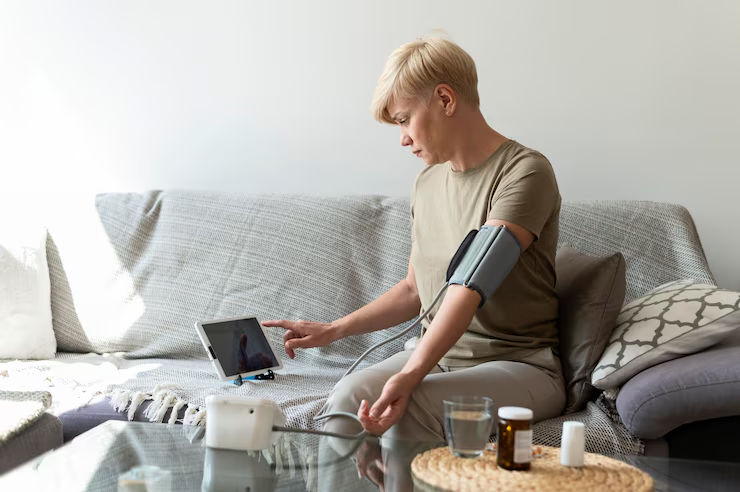Table of contents
Addiction recovery is a complex, emotional, and deeply personal journey. For years, I struggled with substance dependence that took a toll on my health, relationships, and sense of self. While traditional treatment approaches helped, they didn’t fully address the anxiety, insomnia, and physical discomfort I faced on a daily basis. That’s when I discovered the potential of CBD and addiction recovery—a combination that has become a cornerstone in my ongoing healing.
In this blog post, I’ll share my personal experience using CBD during addiction recovery, what I’ve learned along the way, and how it may help others walking a similar path.
Understanding CBD and Its Role in Recovery

Cannabidiol, or CBD, is a non-psychoactive compound derived from the hemp plant. It works by interacting with the endocannabinoid system (ECS), which plays a critical role in regulating mood, sleep, inflammation, and stress responses. Unlike THC, CBD does not produce a “high,” making it a popular option for those seeking therapeutic benefits without mind-altering effects.
Recent studies and personal accounts have shown CBD’s potential to:
- Reduce anxiety and cravings
- Support better sleep
- Manage pain and inflammation
- Improve mood stability
All of these factors are essential when rebuilding life after addiction.
Why I Turned to CBD During My Recovery

After completing an inpatient rehabilitation program, I was determined to stay sober—but the challenges didn’t stop there. I struggled with:
- Anxiety and panic attacks
- Chronic pain from prior injuries
- Restless nights
- Intense cravings, especially during high-stress situations
Medications helped initially, but I worried about becoming dependent on new substances. I started researching holistic options and found growing evidence supporting the benefits of CBD and addiction recovery. I spoke with my doctor, who approved trying a high-quality, full-spectrum CBD oil.
How CBD Helped Me in My Recovery Journey
1. Eased Anxiety and Emotional Turbulence
CBD gave me a sense of calm that I hadn’t felt in years. It helped me better manage anxiety attacks and reduce the emotional rollercoaster that often accompanies sobriety.
2. Minimized Cravings
While cravings still came, they were less intense and easier to manage. CBD helped create a mental buffer that allowed me to pause, reflect, and redirect my thoughts instead of reacting impulsively.
3. Improved Sleep Quality
Insomnia was a constant battle during the early months of recovery. With consistent CBD use, I started falling asleep more easily and waking up refreshed—without grogginess or dependency.
4. Supported Physical Healing
CBD’s anti-inflammatory properties helped reduce the lingering physical pain that could have otherwise triggered relapse. It became a vital part of my self-care routine.
5. Promoted Mindfulness and Routine
Taking CBD became part of my daily wellness ritual. Combined with therapy, meditation, and support groups, it gave me a new sense of structure and personal control.
Things to Consider Before Using CBD for Addiction Recovery
- Talk to your healthcare provider, especially if you’re on medication or have a complex medical history.
- Choose a reputable CBD brand that uses third-party lab testing and offers transparency.
- Start with a low dose and monitor how your body reacts.
- CBD is a complement, not a cure. Combine it with counseling, support groups, and other evidence-based practices.
FAQs About CBD and Addiction Recovery
Yes, some studies and anecdotal reports suggest CBD can help manage symptoms like anxiety, nausea, and irritability associated with withdrawal.
No. CBD is not addictive and does not produce a high. It may even have anti-addictive properties by regulating mood and reducing cravings.
Some people feel calming effects within 30–60 minutes, while others see results after several days or weeks of consistent use.
Full-spectrum or broad-spectrum CBD oils or capsules are generally recommended for more comprehensive benefits, but always check for THC content based on your needs.
No. CBD should not replace professional treatment but can serve as a supportive addition to a broader recovery plan.
Final Thoughts
CBD and addiction recovery have become an important part of my life. It’s not a magic solution, but it has helped me manage the physical, emotional, and psychological hurdles of sobriety in a safe, natural way. If you’re exploring ways to support your recovery journey, CBD might be a helpful tool—just as it was for me.
Everyone’s path is different, and what worked for me might not work for everyone. But in my experience, CBD became not just a supplement, but a source of hope.





